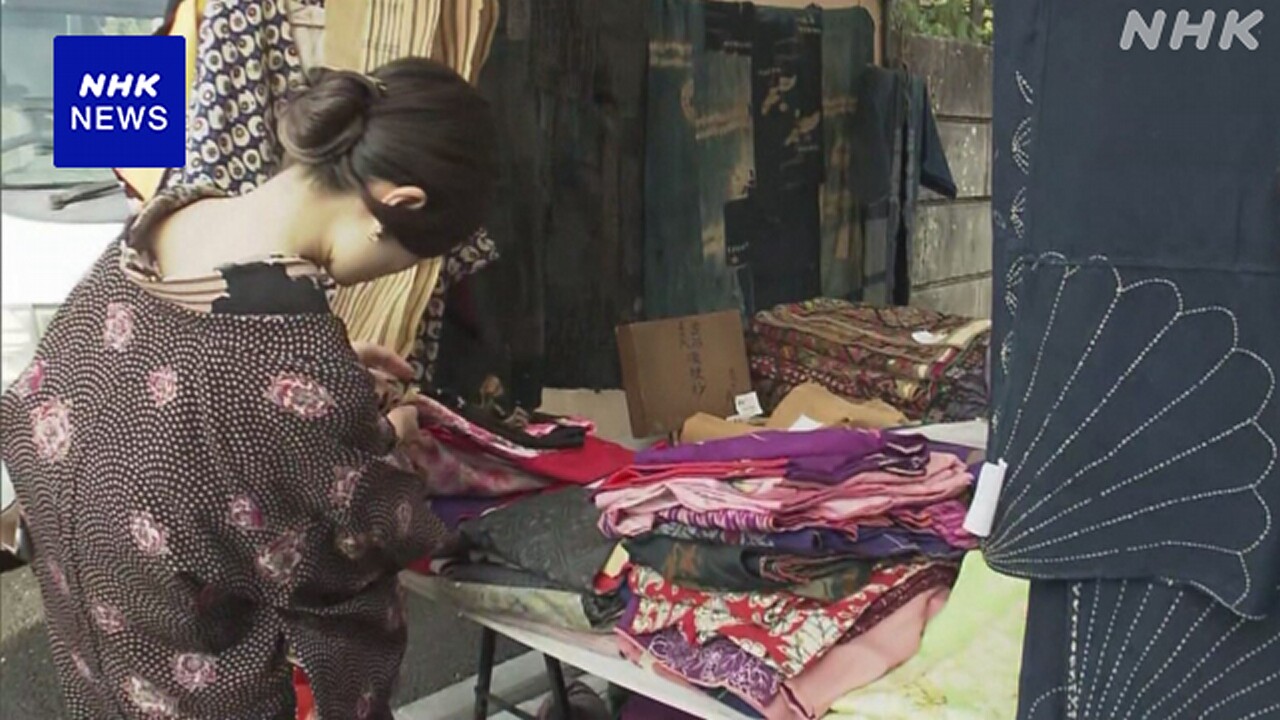With a history of more than 400 years, the "Boro Market" is held in Setagaya Ward, Tokyo, where stalls such as second-hand clothes and antiques are lined up, and it is crowded with many customers.
The "Boro Market of Setagaya" is said to have started in the Azuchi-Momoyama period more than 400 years ago, and since the Meiji era, it has been called "Boro City" because many used clothes and rags have been sold.
Around Setagaya Station on the Tokyu Setagaya Line, there are about 600 shops selling a variety of products, mainly second-hand clothes and antiques, and it is crowded with many people.
At a store that sells old kimono fabrics, visitors would select products while checking the patterns and materials.
A woman in her 60s in Tokyo said, "I was looking forward to the Boro Fair because I wanted to buy cloth for dressmaking, and I was very satisfied because I was able to buy enough suitcases to fill the suitcase I brought."
Boro City has been canceled or reduced due to the influence of the new coronavirus, but this year the scale and time of the event are the same as usual, and the number of stalls is gradually returning.
At the venue, the famous "Daikan mochi" made from freshly made mochi was also sold, and there was a long line because it can only be purchased at Boro City.
A woman in her 60s who came from Yokohama City to buy "Daikan mochi" said, "I was finally able to buy it after standing in line for about an hour and a half.
The "Boro Market in Setagaya" will be open until 1 p.m. on the 16th, and will also be held on the 8th and 15th of next month.

